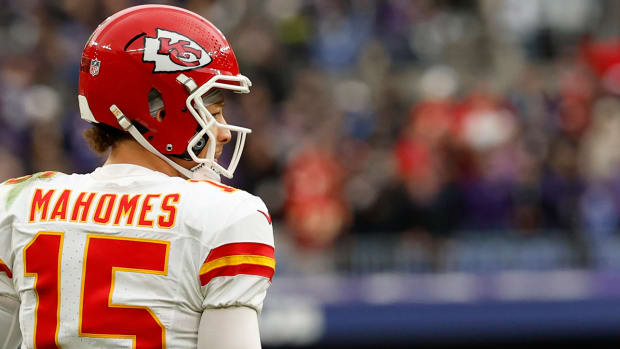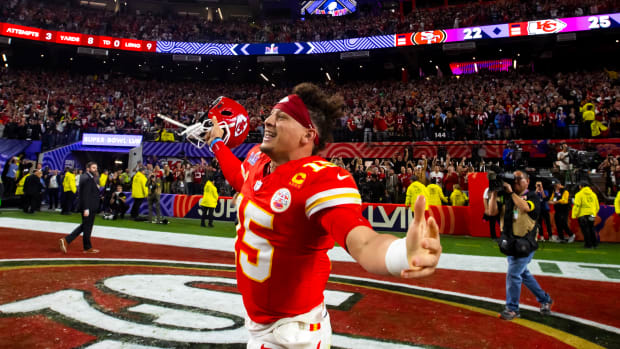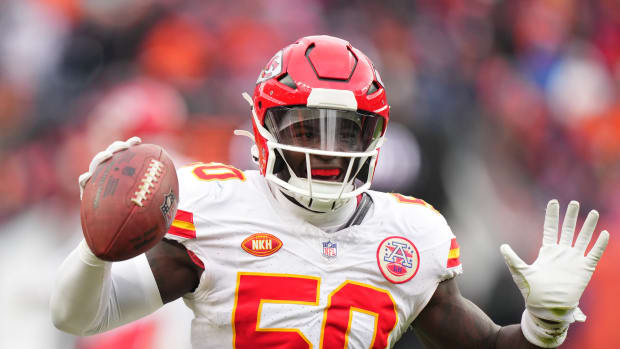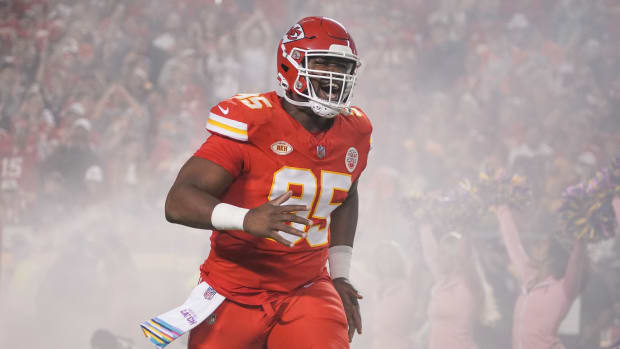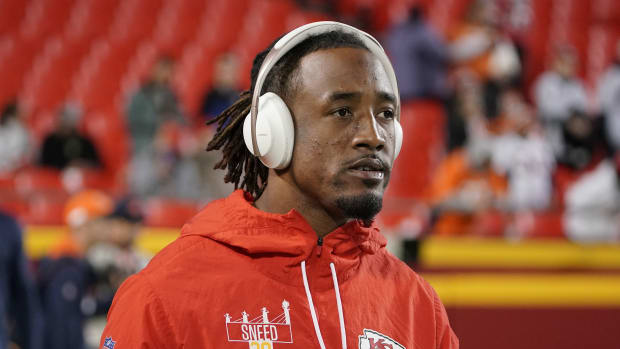Baseball is Back, Just in Time for Football Season
On Saturday, the Kansas City Chiefs officially reported to training camp. Meanwhile, in Cleveland, Ohio, the Kansas City Royals picked up their first win of the season, a 3-2 extra-innings victory over the Cleveland Indians.
If you went into a coma after the Chiefs’ Super Bowl victory on February 2, the preceding paragraph would seem to be utter nonsense. The Royals were scheduled to play their first game of the 2020 season on March 26th against the Chicago White Sox and play nearly a hundred baseball games before the end of July. Even the Royals, at their most woeful, couldn’t completely avoid winning the occasional game, if games were being played. How could their first win come on the same day the Chiefs reported, on time, to training camp?
Because baseball games weren’t being played, as Major League Baseball and the MLBPA spent the summer locked in a publicly contentious fight over when and where — and if — baseball would happen this year. The NFL, meanwhile, seemed to largely waste opportunities to negotiate its own deal with the NFLPA in April, May, and June, before waging a much, much briefer version of baseball’s labor dispute over two weeks at the end of July. In the end, we’re getting both baseball and football this year, and the arrival of the Chiefs at training camp around the same time as the Royals’ delayed season start puts the two in direct competition for the first time in years.
You see, Kansas City’s two professional sports teams have a peculiar and longstanding pact. The Chiefs cannot be good at the same time as the Royals. The Royals cannot be good at the same time as the Chiefs.
The Chiefs arrived in KC in 1963 as one of the premier teams of the upstart American Football League. The Royals came a few years later, in 1969 as an expansion team, and had their first winning season in 1971. The Chiefs won their division in 1971, but did not make the playoffs again until 1986 — the year after the Royals, who had been to the playoffs seven times since 1971, won their first World Series.
Then came the 1990s, when the Chiefs were amongst the best teams in the NFL, and the Royals absolutely stunk. The Royals finished the 1994 season, shortened by a strike, with a 64-51 record. They would not have another winning season until 2003, and not another until 2013. They endured a 29-year playoff drought, during which time the Chiefs went to the playoffs 12 times. The two would occasionally be bad at the same time, but never good at the same time.
Usually, this pact pays dividends for both teams. Since the Royals typically begin play in March or April, in years where they are not competitive, they are out of contention by the time the Chiefs report to camp in July. Conversely, in years in which the Royals manage to remain in contention into August, September, and October, the Chiefs have been kind enough not to yank the spotlight away by winning lots of football games. But this year, by default, the Royals are in contention in late July, one game back in their division with 57 games to play. And the Chiefs? They’re just the reigning Super Bowl champions and the odds-on favorite to repeat. This is a good problem to have, and it's happened only once before.
It’s September 29, 2014. I am attending a Monday Night Football game at Arrowhead. The Chiefs, in their second season under head coach Andy Reid, are hosting the New England Patriots. The game is a historic rout — with the Patriots trailing 41-7 in the fourth quarter, quarterback Tom Brady is benched for young Jimmy Garoppolo, who throws his first NFL touchdown pass to Rob Gronkowski with 7:25 left in the game to salvage a 41-14 final score. Afterward, Patriots’ coach Bill Belichick delivers a now-infamous presser, in which he delivered an iconic line over and over and over again. “We’re on to Cincinnati.”
As the crowd files out of Arrowhead, a simultaneously strange and familiar chant forms up. Instead of the traditional post-victory Tomahawk Chop, punctuated by banging the metal skin of the ramps from the upper deck, the crowd shouts out “LET’S GO ROYALS!” (followed, of course, by a BANG BANG BANGBANGBANG on the ramp). The following night, September 30, 2014, will be the Royals' first playoff game in nearly 30 years. They are scheduled to play the Oakland A’s in a single-game wild card play-in. The winner gets to advance to play a five-game set against the Los Angeles Angels, 100-game winners. The loser goes home.
I am fortunate to be sitting — well, mostly standing — in Kauffman Stadium the following night, as James Shields is battered early by the A’s’ lineup, as the late Yordana Ventura enters from the bullpen to surrender a towering three-run home run to Brandon Moss, as the game devolves into a seemingly hopeless 7-3 deficit late into the game. But the Royals then rally for three in the eighth inning and one in the ninth, and two in the 12th facing another deficit, and win the game in stunning fashion. They battle on to the final out of Game 7 of the World Series.
The very next year, 2015, is arguably the greatest year in KC sports’ history. The Royals win the World Series. The Chiefs win their first playoff game in a generation. After years of debate over whether Kansas City is a baseball town or a football town, the proverbial question finally had an answer:
Yes.
The Royals are only in contention by default. They're likely not a great baseball team, but anything can happen when a 162-game season is shortened to 60 games, and a playoff field is expanded from 10 teams to 16. They have a promising core of young talent — including Brady Singer, who made his MLB debut in Saturday's win over Cleveland — and hope for the future, but fate has given them a chance to be relevant a year or two early.
And the Chiefs? The Chiefs have Patrick Mahomes. They're going to be good for at least another decade. If the Royals can hold up their end of the bargain, Kansas City sports could reach a height never seen before.
We're all here for it.
Is Kansas City a baseball town, or a football town? Yes.
